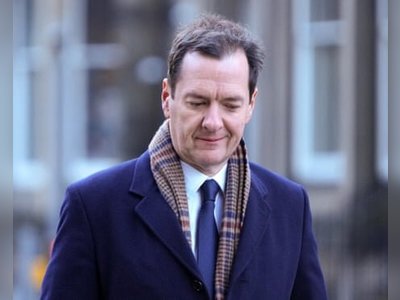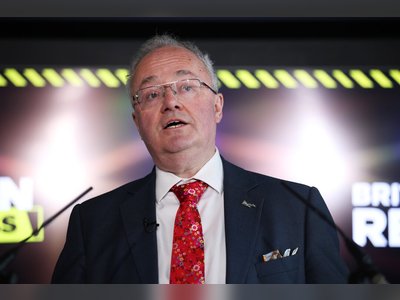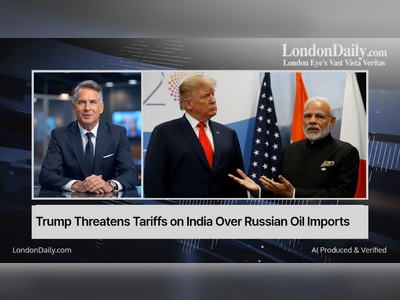UK Seeks Exemption from Proposed US Trade Tariffs Amid Global Concerns
Business Secretary Advocates for UK Exclusion Due to Absence of US Trade Deficit
The United Kingdom is seeking exemption from trade tariffs that the US is considering imposing on foreign exports.
UK's Business Secretary, Jonathan Reynolds, highlighted that the US does not have a goods trade deficit with the UK. This statement comes as US President Donald Trump has reiterated his intent to impose substantial tariffs on countries exporting goods to the US.
Reynolds conveyed to the BBC that the absence of a trade deficit between the UK and the US should be a significant factor in the discussion, especially when the US pursues its trade policies.
When questioned about a potential exemption for the UK, President Trump did not respond directly, instead shifting focus to the trade deficit challenges with Canada and his plans for resolution.
The looming prospect of increased taxes on imports to the US has caused apprehension among global leaders.
Such measures could make it more costly for international companies to access the US market, widely recognized as the world’s largest economy.
During the World Economic Forum, Trump encouraged global executives to opt for manufacturing within the US or face comprehensive tariffs potentially amounting to billions or trillions of dollars.
Reynolds pointed out that the US lacks a trade deficit with the UK regarding manufactured goods, suggesting grounds for dialogue based on economic logic.
He noted, "We've obviously got a services-based economy.
The US does not have that deficit with us so if that's the logic of that position, I think we've got an argument to engage with."
Trump's tariff strategy remains a focal point of his economic agenda, aimed at domestic economic growth, job protection, and tax revenue enhancement.
Recently, he contemplated a 10% import tariff on Chinese goods from February, attributing it to issues such as illegal fentanyl trafficking.
In other developments, UK business officials have indicated openness to aligning with certain EU standards to restore unhindered access to European markets.
This alignment could include reduced trade barriers in exchange for compliance with EU norms, something which does not, according to Reynolds, infringe upon the UK government's key policy boundaries.
Reactions in the UK Parliament remain mixed, with varying perspectives on the terms and implications of any potential UK-EU trade agreements.
As the discussions continue, critical decisions are yet to be finalized, and opposition parties express divergent views on the government's approach to international trade relations.
UK's Business Secretary, Jonathan Reynolds, highlighted that the US does not have a goods trade deficit with the UK. This statement comes as US President Donald Trump has reiterated his intent to impose substantial tariffs on countries exporting goods to the US.
Reynolds conveyed to the BBC that the absence of a trade deficit between the UK and the US should be a significant factor in the discussion, especially when the US pursues its trade policies.
When questioned about a potential exemption for the UK, President Trump did not respond directly, instead shifting focus to the trade deficit challenges with Canada and his plans for resolution.
The looming prospect of increased taxes on imports to the US has caused apprehension among global leaders.
Such measures could make it more costly for international companies to access the US market, widely recognized as the world’s largest economy.
During the World Economic Forum, Trump encouraged global executives to opt for manufacturing within the US or face comprehensive tariffs potentially amounting to billions or trillions of dollars.
Reynolds pointed out that the US lacks a trade deficit with the UK regarding manufactured goods, suggesting grounds for dialogue based on economic logic.
He noted, "We've obviously got a services-based economy.
The US does not have that deficit with us so if that's the logic of that position, I think we've got an argument to engage with."
Trump's tariff strategy remains a focal point of his economic agenda, aimed at domestic economic growth, job protection, and tax revenue enhancement.
Recently, he contemplated a 10% import tariff on Chinese goods from February, attributing it to issues such as illegal fentanyl trafficking.
In other developments, UK business officials have indicated openness to aligning with certain EU standards to restore unhindered access to European markets.
This alignment could include reduced trade barriers in exchange for compliance with EU norms, something which does not, according to Reynolds, infringe upon the UK government's key policy boundaries.
Reactions in the UK Parliament remain mixed, with varying perspectives on the terms and implications of any potential UK-EU trade agreements.
As the discussions continue, critical decisions are yet to be finalized, and opposition parties express divergent views on the government's approach to international trade relations.











